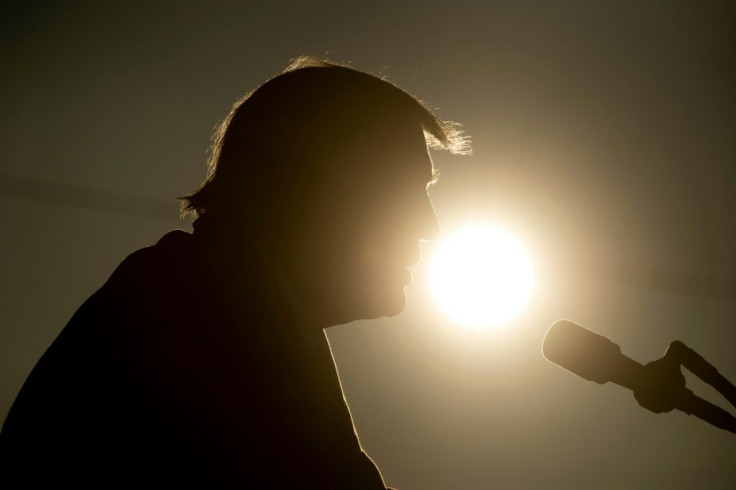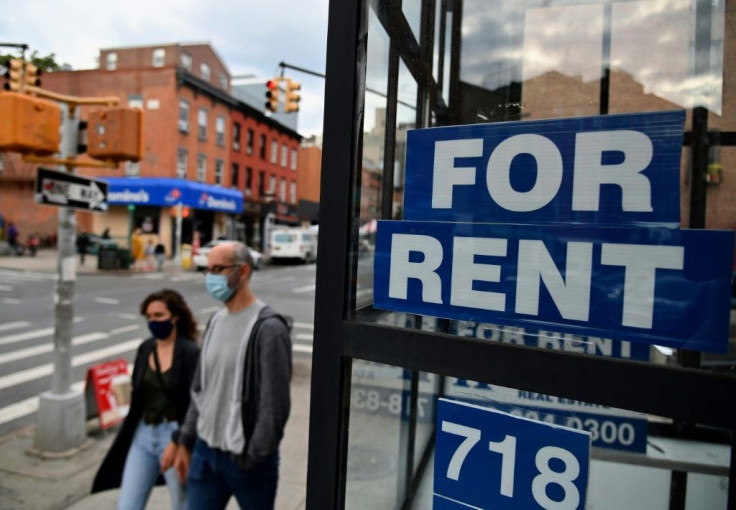Trump Attacked GOP Economic Orthodoxy And Got Away With It
After taking control of the Republican party, President Donald Trump led it through a reshaping of its economic principles few ever expected.
Protectionism replaced free trade, the national debt ballooned and balancing the US budget was put on the back burner in what experts describe as a shake-up of conservative economic orthodoxy that may outlast Trump, even if he loses at the ballot box on Tuesday.
"The Republican Party is not going to return to what it was before," said Edward Alden, a senior fellow on the Council on Foreign Relations.
"The party has become deeply confused ideologically and it's not at all clear what it stands for anymore on."

Trump's economic vision will be put before voters when the president stands for a second term against Democratic challenger Joe Biden.
A slew of Senate seats up for grabs could also move control of that chamber to the Democrats. But no matter which party controls the White House and Congress after the dust settles, Eswar Prasad, a professor of trade policy at Cornell University, says Trump's doctrine will endure.
"The GOP seems to have struck a Faustian bargain with Trump, abandoning some of its core economic principles in favor of pushing forward its social agenda along with lower taxes, deregulation and rightward tilt of the judicial system," he said.
"Whatever the outcome of the upcoming election, Trump has changed the substance and tone of the Republican Party in ways that will take a long time to reverse."

Prior to Trump's 2016 election, the Republican Party favored free trade, but the Trump administration imposed punitive tariffs on hundreds of billions of dollars in US goods, particularly from China and Europe.
Balancing the gigantic, debt-infused US budget was another talking point of the Grand Old Party but he postponed the deadline for achieving that by five years to 2035 and approved $3 trillion in aid to support the economy during the coronavirus downturn.
And while the Republicans once used concerns over the national debt to thwart the ambitions of his Democratic predecessor Barack Obama, Trump made clear in 2019 that taming it was no longer a priority, claiming the money is better spent on the military.

"If we don't have a strong military, you don't have to worry about debt. You have bigger problems," Trump said at the White House.
If judged by his statements, Trump did not always think this way.
"I cannot believe the Republicans are extending the debt ceiling--I am a Republican & I am embarrassed!" he tweeted in 2013 amid a battle between congressional Republicans and Obama over raising the cap on how much the world's largest economy could borrow.
In the fiscal year ending September 30 of this year, the US budget deficit hit $3.1 trillion, more than double its previous peak.
But in 2012, Trump tweeted "The deficits under @BarackObama are the highest in America's history. Why is he bankrupting our country?"
Trump was swept into office with the support of white, working-class voters disenchanted with Washington politics, and shifted elements of American policy towards populism.
Geoffrey Gertz, an expert at the Brookings Institution, said that unlike Republicans before him, Trump didn't attack the United States' social safety net, and many of his most drastic comments didn't actually end up being policies.
However, he attempted to influence private business dealings to an unusual degree, and Gertz said his repudiation of free trade "is really the clearest break that Trump has had with his Republican policies."
Trump has addressed this dissonance, saying on Twitter this month "If I don't sound like a typical Washington politician, it's because I'm NOT a politician."
But behind this populist messaging, Alden said the "Republican Party is out of ideas.
"Until they can formulate new ones, I think it will be just a reactionary party. If the Democrats are in power, the Republicans will react against whatever the Democrats do," he said.
© Copyright AFP {{Year}}. All rights reserved.




















